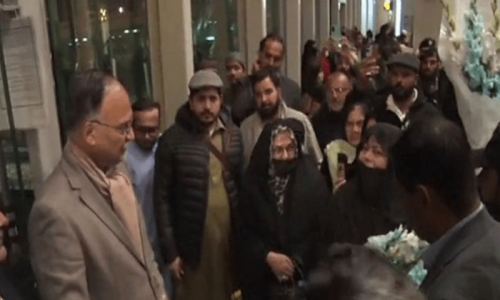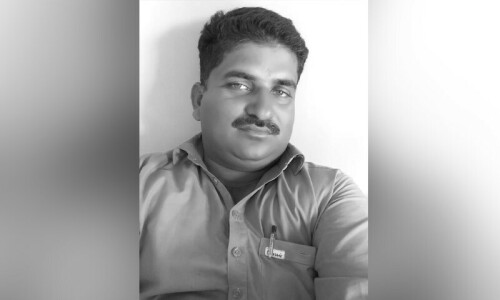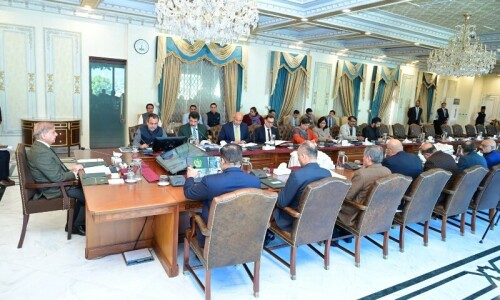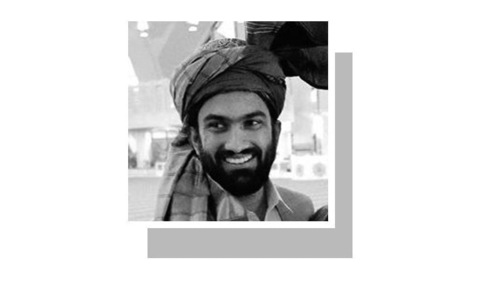 The Saarc countries last week decided to set up a forum to enhance cooperation among farmers with a view to arrest slow growth the agriculture is currently suffering from in South Asia. It will be called South Asian Forum for Farmers and Co-operatives and will meet in Pakistan in September to take the initiative forward.
The Saarc countries last week decided to set up a forum to enhance cooperation among farmers with a view to arrest slow growth the agriculture is currently suffering from in South Asia. It will be called South Asian Forum for Farmers and Co-operatives and will meet in Pakistan in September to take the initiative forward.
The decision was taken at a conference on ‘science-based agricultural transformation towards alleviation of hunger and poverty in the Saarc countries’ held last week in New Delhi. Its executive committee will consist of two representatives from each member country. Regional information centres are to be set up to alert farmers on the movement of pests, spread of diseases and climate factors to help them adopt better farming practices. NGOs, public and private sectors and farmers will be the main stakeholders in the Forum.
A admirable objective of the forum is to take a joint stand at WTO meetings on agriculture –– an area which still eludes a satisfactory settlement since 2001, and it is where the developed countries are still unwilling to grant equal rights to the developing countries. But how far the Saarc can succeed in attaining this objective is difficult to foresee. The past experience has been disappointing.
It is worth noting that while the countries in South Asia were able to negotiate and form Saarc in 1985, they were unable to collaborate during the Uruguay Round (1986-1993) talks for the formation of the WTO to protect their regional interests: the two events taking place simultaneously. For several years, the need for forging a common position in the WTO was not even considered, nor given any importance. And the Saarc meetings also ignored this matter.
One reason for this state of affairs has been the continuing political tension between India and Pakistan which is also responsible for slow progress in economic cooperation and trade within Saarc. Another reason is Indian policy-makers’ myopic view that since India is economically better placed and, in fact, on the verge of becoming a developed country, it need not seek a role from Saarc platform. It should be more interested in playing a leadership role in issue-based coalitions with countries like China, Brazil, Malaysia and South Africa. This is seen as an over-ambitious attitude of a section of Indian bureaucracy.
As a result, at no WTO ministerial conference Saarc countries were able to forge a common position. At Cancun, they decided to align themselves with different coalitions; India and Pakistan joined G-20, Bangladesh, Bhutan, Nepal and the Maldives were part of the LDCs (least developing countries). Sri Lanka decided to go it alone and began supporting the US position.
However, a renowned Indian agricultural scientist M.S. Swaminathan, who was present at the New Delhi conference made a notable observation: “The world is at the crossroads in terms of the global food security system. There is no likelihood of petroleum prices going down in the near future. Global food prices will be high and the demand for land for fuel production, biofuel versus food, has grown and therefore all of us should try hard to become self-reliant in food and at the same time attack the problem of malnutrition to appropriate food base as well as other forms of intervention.”
It may be recalled that in December, 2006, agriculture ministers of Saarc states, during a meeting held in Islamabad, had decided to set up a “Saarc Regional Food Bank” to meet food emergencies in the region. The meeting had also finalised the proposed bank’s ‘concept paper’ but nothing happened later.
In Pakistan, the agriculture sector is characterised by strong inequality in the distribution of assets, particularly land and water. About two per cent of the households control more than 45 per cent of the land area. Big farmers have also captured the subsidies in water and agriculture, as well as the benefits of agricultural growth. Agriculture credit schemes have also mostly benefited big farmers who have capitalised the implicit subsidies through higher land prices and cheaper access to mechanisation rather than labour.
According to World Bank, the rural poverty is back to the same level where it was at the beginning of the 1990s. This has occurred despite generally favourable policies on prices and markets, and a relatively liberalised environment. While consecutive droughts have certainly played a detrimental role in the performance of the sector, it also faces significant structural constraints that hinder the sector’s contribution to economic growth and poverty reduction.
In India, the sharp rise in food grain production during its Green Revolution of the 1970s had enabled the country to achieve self-sufficiency in food grains and stave off the threat of famine. Agricultural intensification in the 1970s to 1980s saw an increased demand for rural labour that raised rural wages and, together with declining food prices, reduced rural poverty. In 1990s, sustained agricultural growth reduced rural poverty to 26.3 per cent.
Since then, however, the slowdown in agricultural growth has become a major feature. India’s rice yields are one-third of China’s and about half of those in Vietnam and Indonesia. With the exception of sugar cane, potato and tea, the same is true for most other agricultural commodities.












































Dear visitor, the comments section is undergoing an overhaul and will return soon.